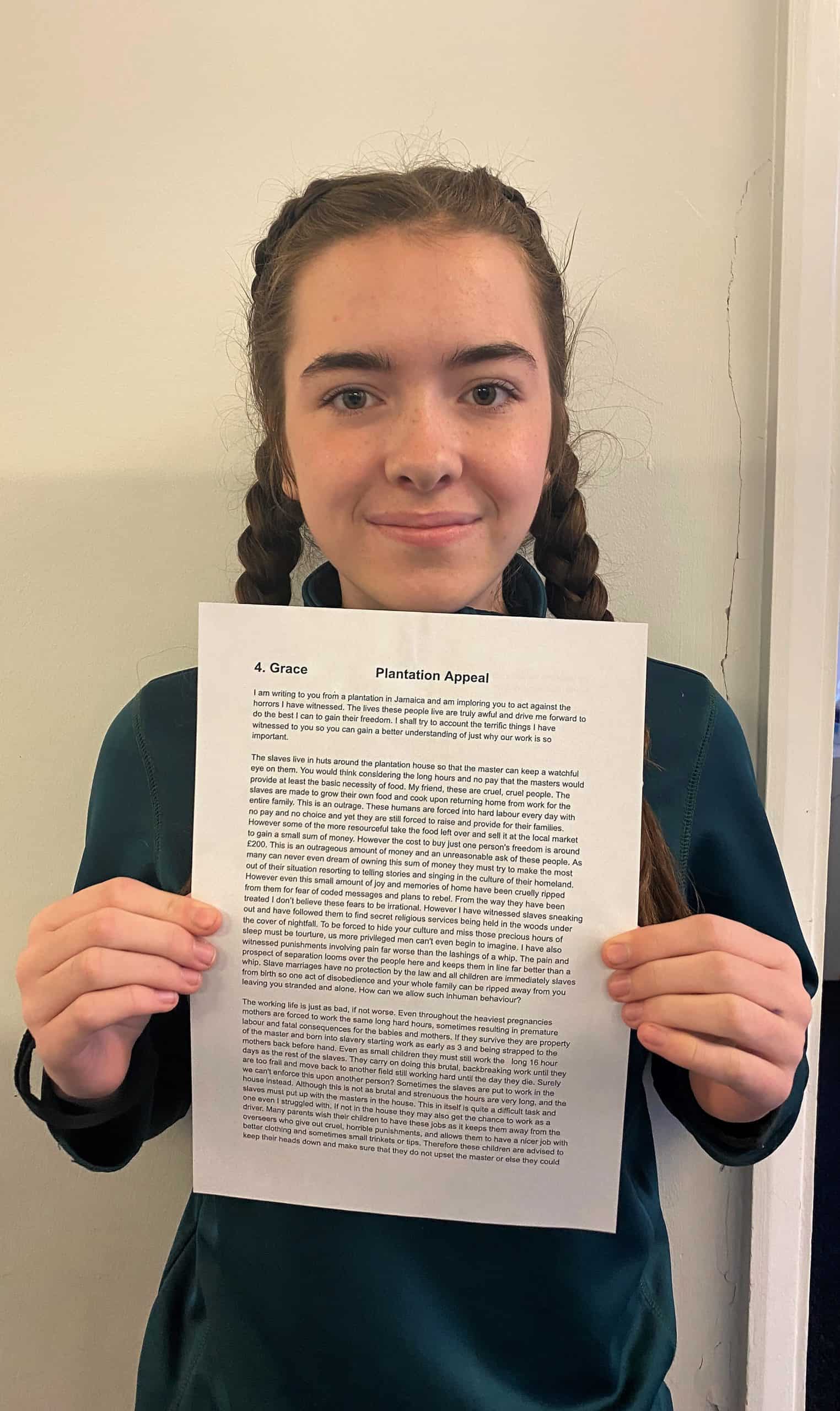
Upper IV Historians learn about Plantations
UIV have done some really insightful extended writing on life on the Britishowned plantations in the Caribbean in the 18th century.
People often read about American plantations and it is too easy to forget that the British ran plantations as well with similar harsh conditions.
During our research the students also found that several people who lived in Reading at that time either owned plantations or invested in them and a surprising number, who had never even been to the Caribbean, owned slaves out there.
The students wondered how finding out the truth about life on the plantations might affect their attitudes.
Below are some excerpts of some of the students’ pieces and thoughts about what it was like living on a plantation.
- Olivia: Life as a slave
Life as a slave was hard work. We were treated horribly on the sugar plantations and worked for too many hours. The sugar cane had to be regularly hoed and there were so many plants that it took forever and we had to be outside all day. The weather was so hot but we couldn’t stop for water breaks. Many slaves tried to escape (I was always too scared to try). This should have been a sign to the slave owners that the plantation owners were treating us dreadfully but as long as they got their sugar they didn’t care.
- Eden: Life on the Plantation
Kidnapped Africans were transported in barbaric conditions across the sea to get to plantations in the Caribbean. They were stripped of clothes, names and their families, and were made into slaves. Because of the neglectful and cruel conditions they were usually very sick and unhealthy and only the fittest survived. They were then taken to an auction that had had flyers posted up around the town near the rich people so that they would flock to buy slaves. The slaves that were the fittest or had the most talents were sold first to the highest bidder then there was a free for all with the rest. The cheaper ones that the lower bidders managed to grab were put at a standard rate and then taken away and separated from their families.
- Megan:Plantation Report 08/6/1776
Last week I visited the British-owned Sugarcane plantation in Jamaica, which owns over 300 slaves that are kept in appalling conditions. Although the plantation turns over huge profit and trending resources, the means through which they produce these should be illegal. My overall sense of my visit to the Jamaican Sugarcane plantations is that slavery should be illegal, because I’m surprised there isn’t a higher fatality rate in the conditions these slaves, or should I say normal people, are forced to work in.I will return to England and put all my efforts into abolishing the slave trade.
- Grace: Plantation Appeal
I am writing to you from a plantation in Jamaica and am imploring you to act against the horrors I have witnessed. The lives these people live are truly awful and drive me forward to do the best I can to gain their freedom. I shall try to account the horrific things I have witnessed to you so you can gain a better understanding of just why our work is so important. Now you see the horrors of slavery and understand why I believe our work is so vital.

